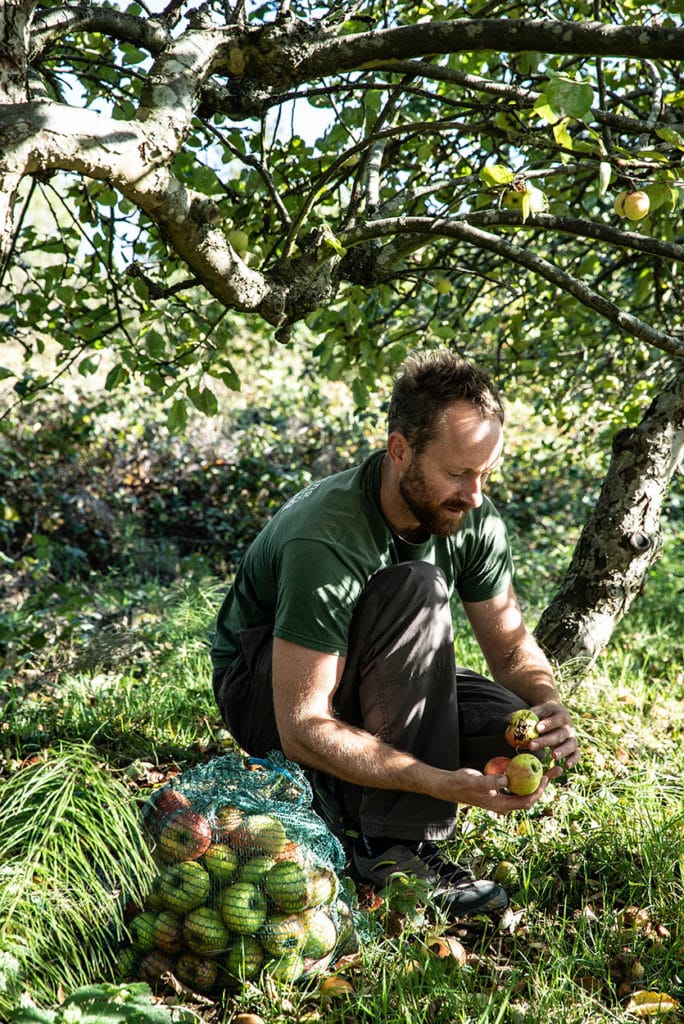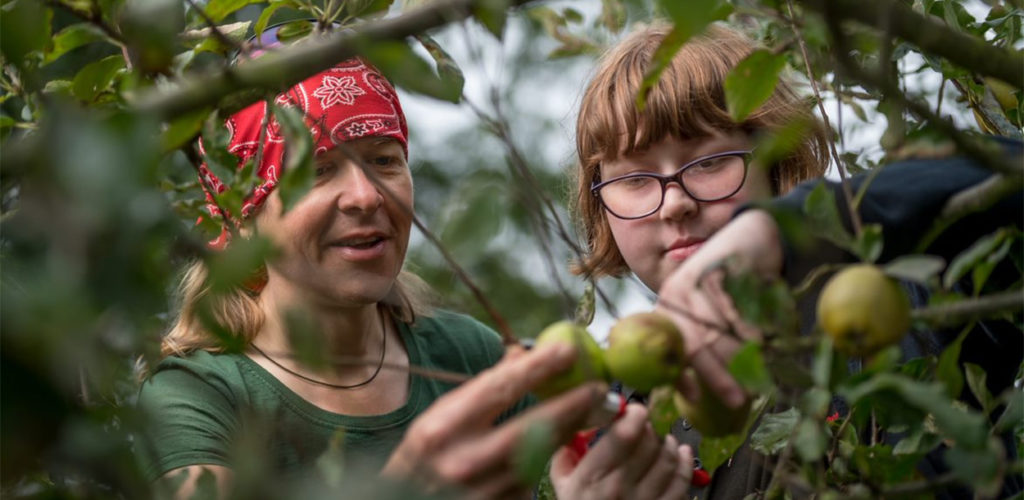By creating or restoring orchards, an urban nonprofit is strengthening local food systems and building community while reenergizing the farming skills of its participants.
With the mission to bring thriving orchards into the heart of urban communities, The Orchard Project has been restoring orchards in U.K. cities and towns for the past 10 years. In the process, it has revived orchard management skills like grafting, pruning, and planting.
Last year, the organization planted or rejuvenated more than 2,000 trees in 70 community orchards. The organization relies on thousands of volunteers, a team of leaders (trained by the project), community group partners, funders, and other supporters.
The Orchard Project Communication Manager Joanne Hooper said: “Our vision is that every person living in a town or a city in the U.K. is within a walking distance from a community orchard. And we try to achieve that through working with community groups to plant the orchards, and supporting them to maintain them.”
Funded by grants, the nonprofit is creative in how it generates funds while being a value-driven community organization. It offers a variety of skills training, consulting, and sells apple juice and cider from its orchards which is processed with the help of community members. The project created an orchard design kit, which can be bought with consulting services, and it also welcomes donations.
Recently, the Orchard Project restored 30 neglected and at-risk London orchards, some of which were on land belonging to hospitals, schools and monasteries. With support from the National Lottery Heritage Fund, which considered those orchards part of the U.K.’s heritage, the project brought the neglected orchards back to life with support from local communities.
As the project creates a sustainable source of fresh fruit in urban areas, it also helps participants appreciate the process of growing food, increasing their awareness about nature, community resilience and food systems.
“We’re also in the middle of a project to improve biodiversity in orchards in Manchester and Edinburgh by implementing certain features, such as ponds, dry-stone walls, leaving decaying trees standing, which create fantastic habitats for many creatures, adding green roofs on any buildings or sheds, creating bug hotels, all of which attracts wildlife,” Hooper said.
“In the meantime, we’re trying to raise awareness, since orchards are key habitats for wildlife as stated in the U.K. Biodiversity Action Plan, and tend to attract more species when compared to parks and gardens, partially due to the fact fruit trees develop rot woods, cracked bark and spaces for bugs and birds to nest in whilst its blossoms attract lots of pollinators.”
Between planting and restoring, the organization has supported more than 420 orchards. Since 2016, it has rescued 13 tonnes of unwanted apples and pears and turned them into juice and a hand-crafted cider called Local Fox, made with traditional pressing methods.

The Orchard Project has partnered with Scottish churches with an organization called Eco-congregration, which repurposes churchyards to grow fruit. The project leverages parishioners who want to help improve the local area.
“A lot of what we do is about engaging people to help tackle the climate crisis, since by getting involved with their community orchards, they are planting trees, taking ownership of at least one of their food sources,supporting wildlife, and sharing skills,” Hooper said.
The Orchard Project has a vast collection of free online resources, including lesson plans for those involved in schools and tips on how to prune old fruit trees.









